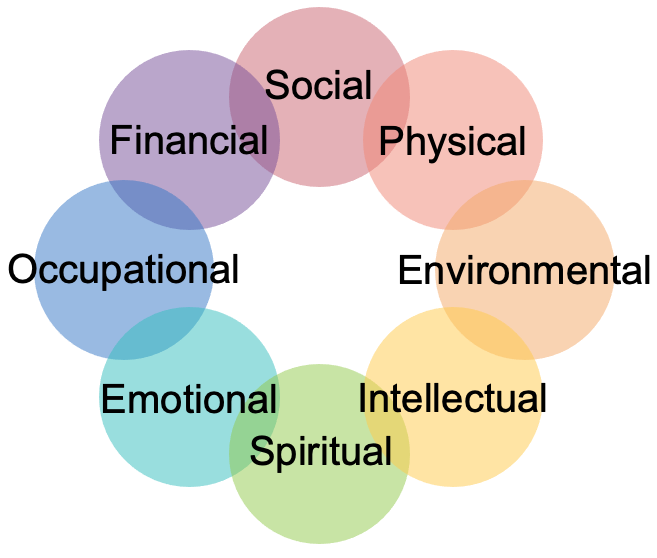Thank you for choosing Paradigm Psychiatry for your mental health care needs. Your well-being is our priority and we are here for you every step of the way. We look forward to supporting you on your journey to better health.
Paradigm Psychiatry is a private owned psychiatric outpatient practice that focuses on medication management for various mental health issues. We treat children, adolescents and adults ages 6 to 64. We are dedicated to fostering a supportive environment where individuals can find healing, understanding, and empowerment on their journey towards mental wellness. We approach every individual with kindness, compassion, understanding, empathy, and respect. We recognize the unique challenges each person faces. We strive to create a safe and non-judgmental space for open communication.

Paradigm Psychiatry was founded in 2020 by Kionglee (Lee) Jung, DNP.
Kionglee Jung is board certified and trained in two specialties: Family Medicine & Psychiatry; to simultaneously care for complex patients with both medical and psychiatric issues. She graduated with her Doctor of Nursing Practice in Family Medicine and is also a Board Certified Psychiatric Mental Health Nurse Practitioner. Paradigm Psychiatry was created to provide a resource in the community that understands and follows the true meaning of quality health care:
Health Care that is safe, effective, patient-centered, timely, and efficient.

Our team of knowledgeable providers conduct thorough psychiatric evaluations and assessments to provide accurate diagnoses, develop treatment plans, prescribe medication, incorporate psychotherapy and evaluate treatment results for patients with emotional, mental, or psychological disorders.
Our Mission and Values
Our mission is to provide an exceptional patient care experience by working with purpose and good intention. Our promise is to be committed to the wellness of individuals, their families, and the community through prevention, intervention, treatment, and education.
We are patient focused - We measure ourselves and our actions through the lens of our patients.
We build relationships with patients and deliver quality care while continuously striving and working towards growth and improvement. Our dedicated providers and staff are committed to deliver compassionate, responsive and professional care to every individual.
Our Purpose and Goals
Mental health treatment aims to enhance the quality of life for individuals, helping them navigate and cope with the various aspects of their emotional, psychological, and social well-being.

Wellness is comprised of eight mutually co-dependent dimensions:
Emotional, physical, occupational, social, spiritual, intellectual, environmental, and financial.
If any one of these dimensions is neglected over time, it can adversely affect one's health, well-being, and quality of life.
The most rewarding aspect of what we do is visibly seeing the progress, improvement and positive changes occurring in each individual. Together we will take the steps needed to help you feel better long-term by identifying and addressing every underlying issue for a better quality of life.

The specific goals of mental health treatment may vary based on the individual's needs, diagnosis, and circumstances, but they generally include the following objectives:
- Symptom Reduction: Alleviate and manage symptoms associated with mental health disorders, such as depression, anxiety, psychosis, or mood swings.
- Functional Improvement: Enhance an individual's ability to perform daily activities, maintain relationships, and participate in social and occupational roles effectively.
- Emotional Regulation: Help individuals develop healthy coping mechanisms and emotional regulation skills to manage stress, frustration, and other challenging emotions.
- Insight and Self-Awareness: Foster self-awareness and insight into one's thoughts, feelings, and behaviors, facilitating a deeper understanding of the underlying factors contributing to mental health challenges.
- Improved Relationships: Address interpersonal challenges and enhance communication and relational skills to promote healthier and more satisfying relationships with family, friends, and others.
- Medication Management: If applicable, optimize the use of psychiatric medications to stabilize symptoms and support overall mental health.
- Prevention of Relapse: Develop strategies and skills to prevent the recurrence of symptoms and minimize the risk of relapse, promoting long-term mental health stability.
- Empowerment and Self-Efficacy: Empower individuals to actively participate in their treatment, make informed decisions, and build a sense of self-efficacy and control over their mental health.
- Stigma Reduction: Contribute to reducing the stigma associated with mental health issues, fostering a more supportive and understanding community.
- Holistic Well-Being: Recognize and address the interconnectedness of mental, physical, and social well-being, promoting a holistic approach to mental health care.
- Enhanced Quality of Life: Work towards improving the individual's overall quality of life by promoting a sense of purpose, satisfaction, and fulfillment in various life domains.
Conditions Treated and Evaluated
- Depression
- General Anxiety and Social Anxiety
- Panic Disorder
- Attention Deficit Hyperactivity Disorder (ADHD)
- Obsessive-Compulsive Disorder (OCD)
- Bipolar Disorder
- Post Traumatic Stress Disorder (PTSD)
- Personality Disorders
- Oppositional Defiant Disorder (ODD)
- Mood Disorders
- Autism & Development Disorders
- Tourette Syndrome and Tic Disorders
- Schizophrenia
- Psychosis
- Phobias and Addictions
- Eating Disorders
Types of Medication
- Antidepressants - Used to treat depression, panic disorder, PTSD, anxiety, obsessive-compulsive disorder, premenstrual dysphoric disorder (PMDD), postpartum depression, and eating disorders.
- Antipsychotics - Used to stabilize mood and treat psychotic symptoms (delusions, hallucinations, paranoia), schizophrenia, bipolar disorder.
- Sedatives and anxiolytics - Used to treat panic disorders and insomnia.
- Mood stabilizers - Used to treat mood disorders and bipolar disorder.
- Stimulants - Used to treat Attention Deficit Disorders (ADD) and Attention Deficit Hyperactive Disorders (ADHD).